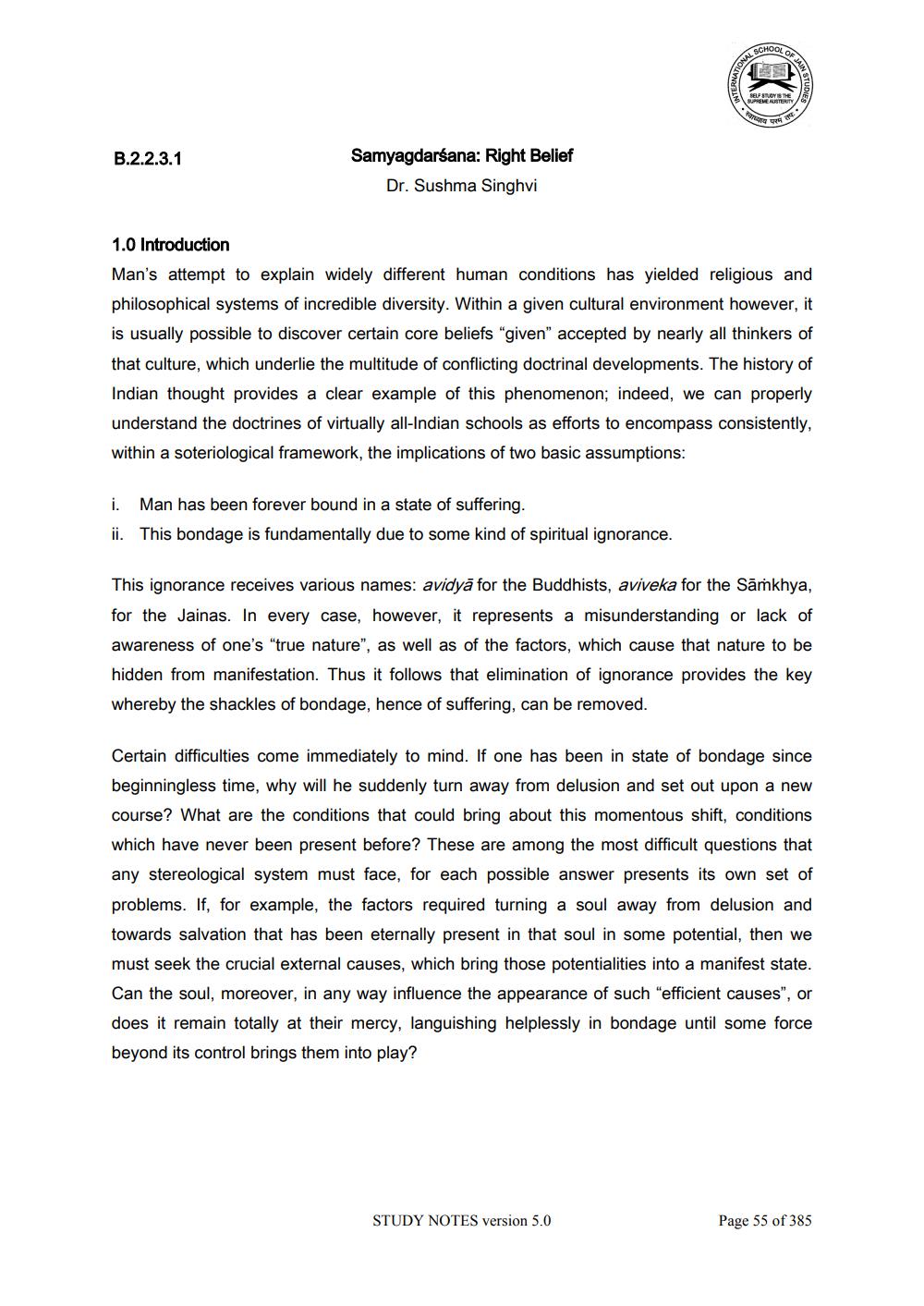________________
B.2.2.3.1
Samyagdarśana: Right Belief
Dr. Sushma Singhvi
1.0 Introduction Man's attempt to explain widely different human conditions has yielded religious and philosophical systems of incredible diversity. Within a given cultural environment however, it is usually possible to discover certain core beliefs "given" accepted by nearly all thinkers of that culture, which underlie the multitude of conflicting doctrinal developments. The history of Indian thought provides a clear example of this phenomenon; indeed, we can properly understand the doctrines of virtually all-Indian schools as efforts to encompass consistently, within a soteriological framework, the implications of two basic assumptions:
i. Man has been forever bound in a state of suffering. ii. This bondage is fundamentally due to some kind of spiritual ignorance.
This ignorance receives various names: avidyā for the Buddhists, aviveka for the Sāṁkhya, for the Jainas. In every case, however, it represents a misunderstanding or lack of awareness of one's "true nature", as well as of the factors, which cause that nature to be hidden from manifestation. Thus it follows that elimination of ignorance provides the key whereby the shackles of bondage, hence of suffering, can be removed.
Certain difficulties come immediately to mind. If one has been in state of bondage since beginningless time, why will he suddenly turn away from delusion and set out upon a new course? What are the conditions that could bring about this momentous shift, conditions which have never been present before? These are among the most difficult questions that any stereological system must face, for each possible answer presents its own set of problems. If, for example, the factors required turning a soul away from delusion and towards salvation that has been eternally present in that soul in some potential, then we must seek the crucial external causes, which bring those potentialities into a manifest state. Can the soul, moreover, in any way influence the appearance of such "efficient causes", or does it remain totally at their mercy, languishing helplessly in bondage until some force beyond its control brings them into play?
STUDY NOTES version 5.0
Page 55 of 385




